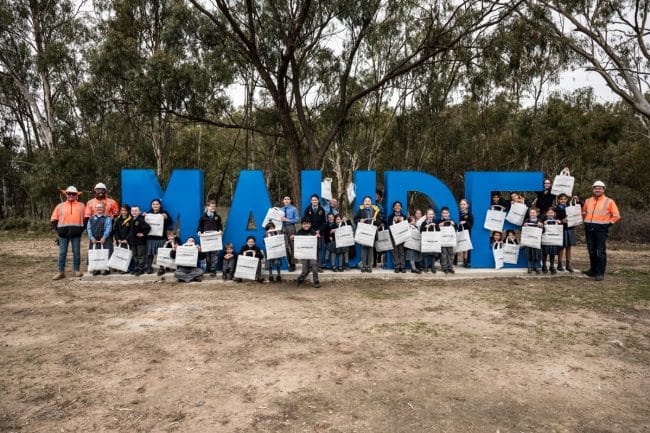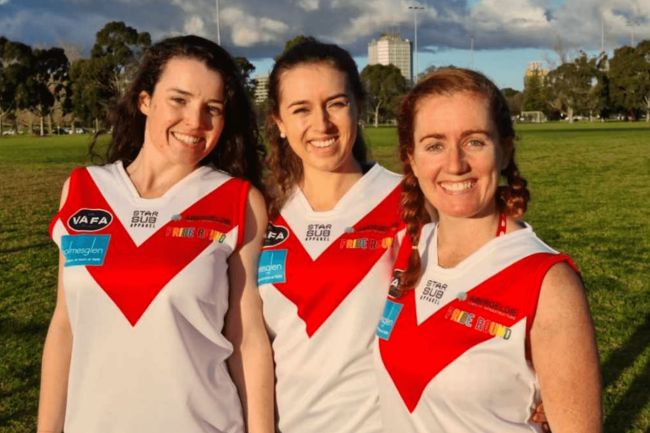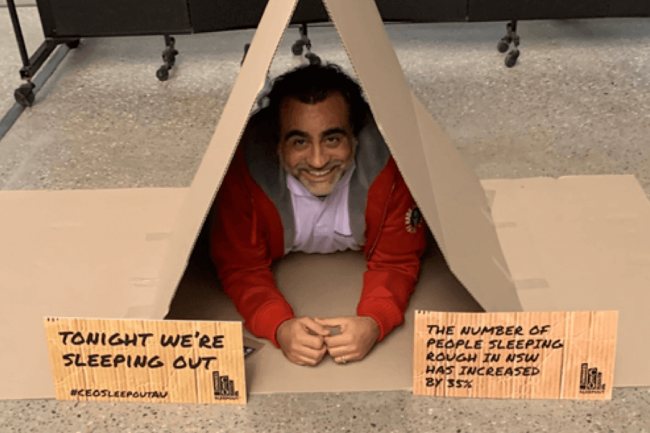
For the construction of Ulan West mine’s ventilation shaft which was delivered ahead of time, below budget and with zero incidents, Abergeldie Complex Infrastructure has won this year’s Contractor of the Year Award.
The Ulan West ventilation shaft contract was for design and construction of a 4.5m finished diameter, hydrostatically lined, vertical ventilation shaft to a depth of 46m to serve underground coal mine working at Glencore’s Ulan west operations.
Initially, Glencore proposed that the shaft was to be sunk using a drill and blast methodology by which mechanical rock breaking equipment was to be used with lining and shoring to be carried our progressively in pace with excavation using interlocking precast concrete segments.
However close consultation between Abergeldie, Glencore’s engineering team and representatives from the Department of Primary Industries identified a number of safety, efficiency and logistical difficulties with the original design proposal.
By working very closely with Glencore’s engineering team, Abergeldie developed an alternative, safer, and more efficient construction solution.
Instead of drill and blast it was decided that blind boring methodology should be used to sink the shaft, with welded steel liner segments used instead of the originally proposed segmented concrete liners.
Blind boring uses a rotary drill technique that works remotely from the surface downwards. A heavily weighted drilling assembly, suspended from above, provides the vertical thrust to a hard rock cutter head equipped with disc type tools, as found on hard rock tunnel boring machines.
Abergeldie said the disc cutters grind concrete grooves, fragmenting the rock between the cutter paths into relatively large pieces and the weight of the drill itself provides all the downward pressure required while being supported at two points to control deviation to within half a per cent of depth in horizontally bedded strata.
The shaft is kept full of water throughout the drilling and lining process with the rock fragments transported from the working face to the surface by a strong flow of water directed around the cutter head and piped up through the centre of the drill rods.
Abergeldie was required to design the shaft, mobilise all machinery and supporting facilities to site, set up, and operate the blind bore drilling rig, carry out bulk earthworks for the construction of on-site sedimentation ponds for recycling of the drill process water and to collect drill spoil from the cutting head, arrange fabrication of the steel liner segments for the shaft, install the steel liner segments and weld them together into continuous hydrostatic surface.
Timing was a constraint that needed to be carefully managed. Once the blind boring methodology was approved, Abergeldie had a strictly limited window of time during which one of its fleet of drill rigs was free for allocation to the Ulan project. Rig mobilisation and assembly needed to be considerably expedited to tie in with other programmed works to which Abergeldie was already committed.
The approval to proceed with the blind boring method was granted on 18 May 2012 and crews were rapidly mobilised to site, commencing works on 4 June 2012.
Site establishment and set up, surface earth works, and the pre-sink liner install were carried out in preparation for the arrival of the drill rig.
Civil work for the pre-sink involved rock breaking/excavating, installing the pre-sink can and FRP concrete construction of the shaft collar slab after drilling out the pre-sink holes and the bore hole.
Abergeldie’s other drilling project commitments meant that the blind bore rig at Ulan had to demobilise by the end of October.
The blind boring rig was mobilised to the Ulan site on 4 August 2012 and drilling commenced on 17 September 2012. Drilling lining and rig demobilisation all took place in just 6 weeks.
The judges commented that Abergeldie took an innovative approach in installing the ventilation shaft “making a traditionally dangerous practice very safe”.
Abergeldie Complex Infrastructure’s managing director, Michael Boyle, said his team was delighted to win the award.
“To win an award judged amongst your peers is really satisfying,” Boyle said.
Though it’s been a tough year for most mining contractors, Boyle said his company had a diversified base which allowed for some breathing space in times of a downturn.
“We’re a little broad-based and we do a bit of civil work and we’re in a few other areas apart from mining and that helps us when times are tough in the sector,” Boyle said.
However Boyle said the resource sector seemed to be shifting, with the company in talks to implement its know-how at other mining operations.
“Things seem to be turning and we’re looking forward to further opportunities coming in the mining space.”
About Abergeldie
Abergeldie is a civil engineering contractor with over 25 years’ experience providing services in the utilities, energy and infrastructure sectors: the complex infrastructure needed to build better communities.











